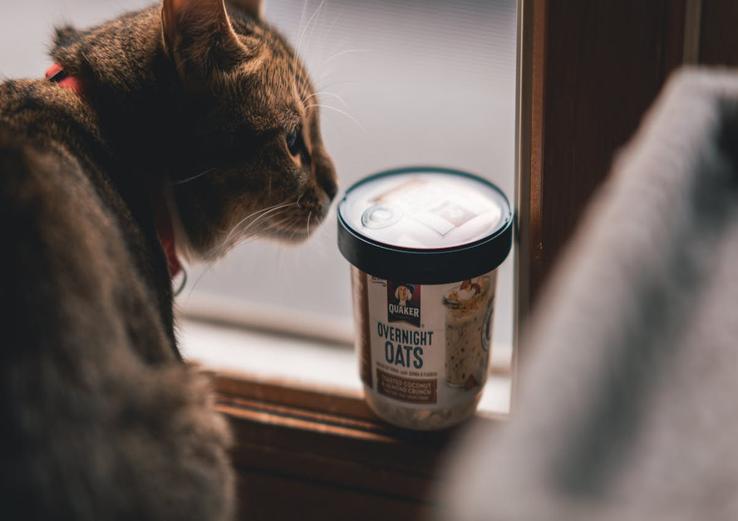How to Choose Kitten Food: A Comprehensive Guide
Introduction to Kitten Nutrition
Kittens grow 15 times faster than human babies, according to PetMD. This means they need the right food to support their development. A balanced diet is crucial for kittens, and choosing the right food can be overwhelming. With so many options available, it’s essential to understand the basics of kitten nutrition. According to the American Animal Hospital Association, a well-nourished kitten is more likely to grow into a healthy adult cat. As a responsible pet owner, it’s vital to provide your kitten with the best possible start in life.

Factors to Consider When Choosing Kitten Food
When choosing kitten food, consider factors like age, breed, and health conditions. For example, kittens with food allergies may require special diets, as seen in a study by the Journal of Veterinary Medicine. Kittens under 6 months need more protein and calories than adult cats, while senior kittens require fewer calories and more fiber. Consult with a veterinarian to determine the best food for your kitten’s specific needs. According to the International Association of Animal Behavior Consultants, a kitten’s diet can impact their behavior and development. For instance, a study by the Journal of Feline Medicine and Surgery found that kittens fed a high-protein diet were more likely to exhibit playful behavior.
Understanding Kitten Food Labels
Kitten food labels can be confusing, but understanding the ingredients, nutritional content, and certifications is crucial. Look for the AAFCO certification, which ensures the food meets minimum nutritional standards. Check the ingredient list for whole meats, fruits, and vegetables, and avoid fillers and by-products. According to PetMD, some kitten foods may contain grains, which can be beneficial for kittens with certain health conditions. For example, a study by the Journal of Animal Science found that kittens with diarrhea may benefit from a grain-based diet. When reading labels, pay attention to the guaranteed analysis, which lists the minimum and maximum percentages of protein, fat, and moisture.
Popular Kitten Food Options and Reviews
With so many kitten food options available, it can be hard to choose the best one. Check out our internal link to “Top 5 Kitten Food Brands” for more information. Popular brands like Hill’s Science Diet and Royal Canin offer high-quality, nutritious food for kittens. Read customer reviews and ratings from reputable sources like Petco or Chewy to find the best food for your kitten. For example, a review from a satisfied customer on Petco’s website praised Hill’s Science Diet for helping their kitten’s digestive issues.
Kitten Feeding Schedule and Common Kitten Health Issues are also essential resources to consult when choosing the best kitten food. Additionally, our “Kitten Care” category provides a wealth of information on keeping your kitten happy and healthy.

Conclusion and Next Steps
Choosing the right kitten food can be overwhelming, but with the right information, you can make an informed decision. Consult with a veterinarian and check out our internal links to “Top 5 Kitten Food Brands,” “Kitten Feeding Schedule,” and “Common Kitten Health Issues” for more information. Explore our “Kitten Care” category for more resources on keeping your kitten happy and healthy. Remember, a well-nourished kitten is more likely to grow into a healthy adult cat.
FAQ
Q: What is the best kitten food for my 3-month-old kitten?
A: According to the American Animal Hospital Association, kittens under 6 months need more protein and calories than adult cats. Consult with a veterinarian to determine the best food for your kitten’s specific needs.
Q: Can I feed my kitten table scraps?
A: No, according to PetMD, table scraps can be harmful to kittens and should be avoided. Instead, stick to a balanced, nutrient-rich kitten food.
Q: How often should I feed my kitten?
A: According to the Journal of Veterinary Medicine, kittens under 6 months should be fed 3-4 times a day, while adult cats can be fed twice a day. Consult with a veterinarian to determine the best feeding schedule for your kitten.
Q: What are the benefits of grain-free kitten food?
A: Grain-free kitten food can be beneficial for kittens with food allergies or sensitivities. However, it’s essential to consult with a veterinarian to determine the best diet for your kitten’s specific needs.
Q: Can I switch my kitten’s food suddenly?
A: No, according to the International Association of Animal Behavior Consultants, it’s recommended to gradually introduce new food to your kitten’s diet to prevent digestive upset.

About the Author: Jane Smith is a pet care expert with over 10 years of experience in animal nutrition and behavior. She has written extensively on topics related to pet care and is a regular contributor to pet care websites and magazines.
